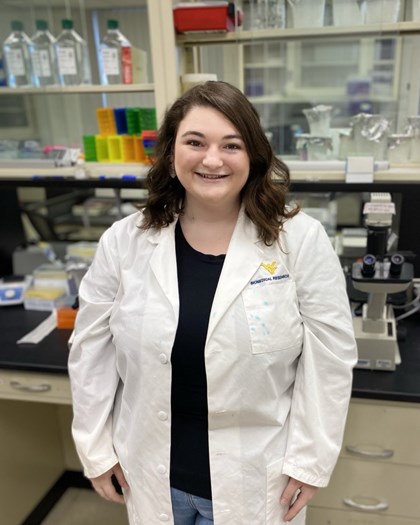
Immunology and Medical Microbiology

Fight diseases where they start.
This program will help you develop the laboratory skills and knowledge needed to assess the function of the immune system and to safely cultivate and identify microorganisms that cause disease.
One of only two bachelor's degree programs housed in a school of medicine, the Immunology and Medical Microbiology program fully integrates knowledge of the immune system with an excellent understanding of the mechanisms utilized by bacteria, viruses, fungi and parasites to cause disease.
Rooted in a hands-on research approach, the program's curriculum provides a strong foundation and preparation for postgraduate study or immediate employment.
Get to know WVU and the School of Medicine
Prospective students - join us for a campus tour or prospective student day or take a virtual tour of the Health Sciences Center and the STEPS facility. Let's go!!
Who you are
The IMMB program is ideal for students interested in pursuing careers in medicine, laboratory diagnosis, biomedical research, health care, or other science-related professions, such as public health, health care policy, and science communications.
From the classroom to the clinic and the library to the lab, the School of Medicine - housed on the Health Sciences Campus in Morgantown - has programs and resources to fit every goal and interest.
The IMMB program appeals to students who want to be:
- Health care professionals who specialize in the diagnosis and treatment of infectious diseases and immune dysfunction.
- Researchers who help to develop new vaccines and other medical therapeutics.
- Educators who expand the knowledge of future scientists and work to educate the public about potential health risks.
Facts
-
1 of 2programs nationally in a school of medicine.
-
Lab experiencestarting first semester, freshman year.

What you'll do
IMMB students have access to:
- Hands-on learning opportunities in research in basic science laboratories.
- Paid research opportunities in infectious diseases, cancer cell biology, and more.
- Internship opportunities in biosafety, flow cytometry, microscopy and imaging, animal behavior, and more.
Many of the classes have laboratories that are designed to give students basic and advanced laboratory research skills starting in their freshman year. Students also have the opportunity to perform research in individual faculty labs and receive credit while in the lab.
Graduates continue on to attend medical, dental, veterinary, physician assistant and graduate schools. Others find immediate employment in the fields of biotechnology, pharmaceuticals, and in government and public health agencies.
Connect with Us
Stay connected with what's happening at the School of Medicine.







